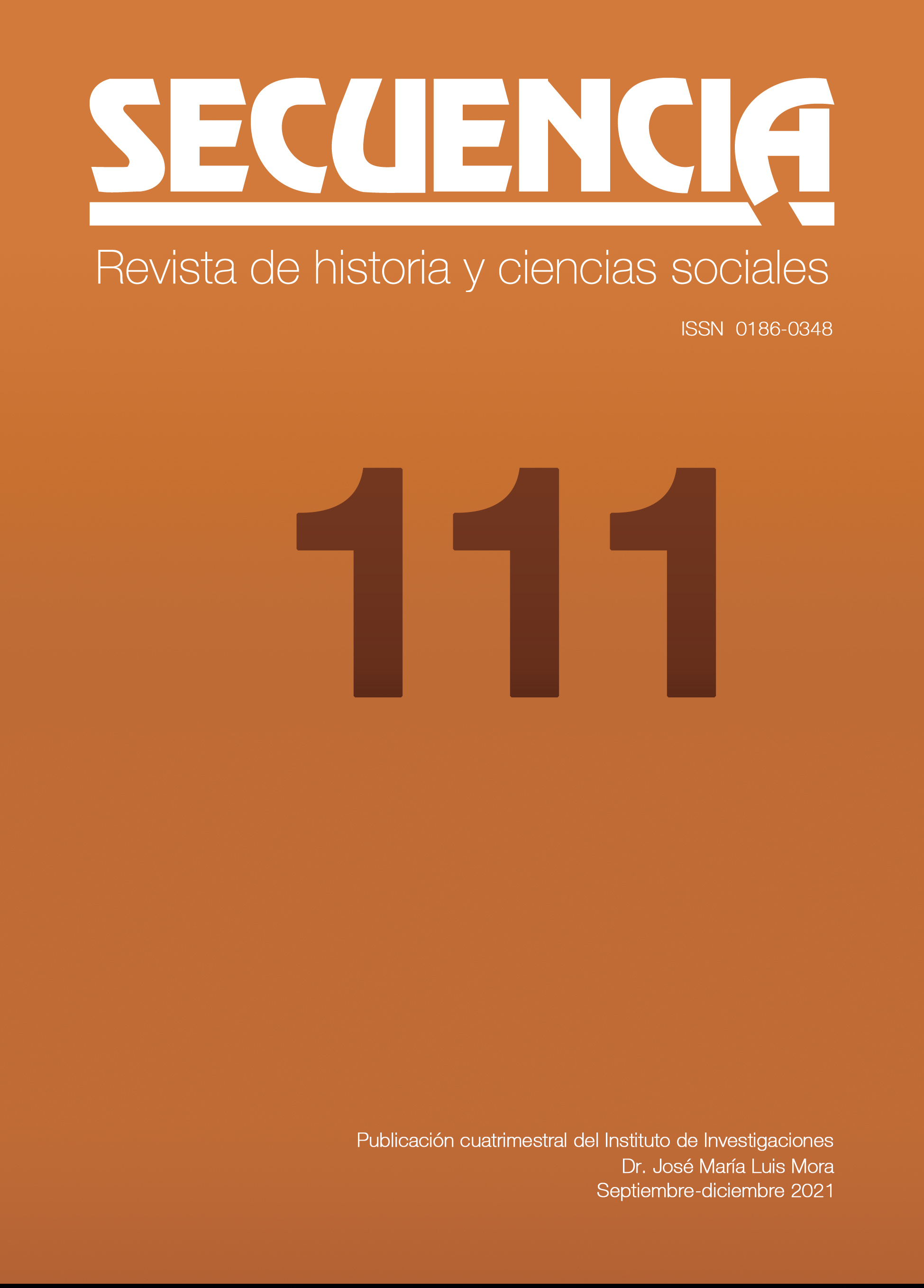Resumen
Este artículo examina la agenda de la diplomacia guatemalteca desde la segunda guerra mundial hasta el inicio de la guerra fría. Argumenta que la estrategia que derivó de esta agenda permite observar las herencias de las disputas geopolíticas en América Central, la posición de los guatemaltecos frente a este escenario heredado y la capacidad de maniobra de su diplomacia. El trabajo es un primer esfuerzo por observar la política exterior de la primera parte del periodo revolucionario guatemalteco en su conjunto, con el fin de llenar agujeros que ayuden a complementar el sobrepeso de la historiografía en la intervención estadunidense de 1954. Se basa en nuevos repositorios guatemaltecos complementados con archivos consulares en París y archivos diplomáticos de Londres, Washington y Ciudad de México.
Citas
Acuña, V. H. (2015). Centroamérica en las globalizaciones (siglos XVI-XXI). Anuario de Estudios Centroamericanos, 41, 13-27. Recuperado de https://revistas.ucr.ac.cr/index.php/anuario/article/view/21838
Alemán, C. (2013). Nicas belicosos: nicaragüenses en la guerra civil de Costa Rica, 1948. Anuario de Estudios Centroamericanos, 39, 111-141. Recuperado de https://revistas.ucr.ac.cr/index.php/anuario/article/view/11795
Ameringer, Ch. (1996). The Caribbean legion. Patriots, politicians, soldiers of fortune, 1946-1950. University Park: University of Pennsylvania Press.
Arévalo, J. J. (2008). Despacho presidencial [1969]. Guatemala: Editorial Oscar de León Palacios.
Bell, J. (1971). Crisis in Costa Rica. The 1948 revolution. Austin: University of Texas Press.
Berth, Ch. (2018). Biografías y redes en el comercio del café entre Alemania y América Central, 1920-1959. México: CIMSUR/UNAM.
Bethell, L. y Roxborough, I. (1992). Introduction: The postwar conjucture in Latin America: Democracy, labor and the left. En Latin America between the second world war and the cold war, 1944-1948. Londres: Cambridge University Press.
Booth, W. (2020). Rethinking Latin America’s cold war. The Historical Journal, 64(4), 1-23. DOI: https://doi.org/10.1017/S0018246X20000412
Brands, H. (2012). Latin America’s cold war: An international history. Cambridge: Harvard University Press.
Brendon, P. (2008). The decline and fall of the british empire, 1781-1997. Londres: Vintage.
Castillo, M., Toussaint, M. y Vázquez Olivera, M. (2011). Centroamérica. Historia de las relaciones internacionales de México. México: SRE.
Darwin, J. (2009). The empire project. Cambridge: Cambridge University Press.
Domke, M. (1945). Western hemisphere control over enemy property: a comparative survey. Law and Contemporary Problems, 11(1), 3-16.
Ferrero, M. y Eiroa, M. (2016). La oposición antitrujillista, la Legión del Caribe y José Figueres de Costa Rica (1944-1949). Revista Complutense de la Historia de América, 42, 175-201. DOI: https://doi.org/10.5209/RCHA.53715
Field, T., Krepp, S. y Pettinà, V. (2020) Latin America and the global cold war. Chapell Hill: University of North Carolina Press.
Friedman, M. (2003). Retiring the puppets, bringing Latin America back in: Recent scholarship on United States-Latin American relations. Diplomatic History, 27(5), 621-636. Recuperado de http://www.jstor.org/stable/24914442
Gaddis, J. (2018). The cold war. Nueva York: Penguin Books.
García, R. (2012). La política exterior de Guatemala: 1944-1954. Espacios Políticos, 5(6), 71-90.
García, R. y Taracena, A. (eds.) (2017). La guerra fría y el anticomunismo en Centroamérica. Guatemala: FLACSO.
García-Granados, J. (1948). The birth of Israel. The drama as I saw it. Nueva York: Alfred A. Knopf.
Gibbins, J. y Vrana, H. (2020). Out of the shadow. Revisiting the revolution from post-peace Guatemala. Austin: University of Texas Press.
Gleijeses, P. (1989). Juan José Arévalo and the Caribbean legion. Journal of Latin American Studies, 21(1), 133-145.
Gould, J. (1992). Nicaragua. En L. Bethbel e I. Roxborough (eds.), Latin America between the second world war and the cold war, 1944-1948 (pp. 243-279). Londres: Cambridge University Press.
Grandin, G. (2002). Off the beach: the United States, Latin America, and the cold war. En J. Ch. Agnew y R. Rosenzweig (eds.), A companion to post-1945 America. Malden: Blackwell Publishing.
Gray, C. (2011). Harry S. Truman and the forming of American grand strategy in the cold war, 1945-1953. En W. Murray, R. Sinnreich, J. Lacey (eds.), The shaping of grand strategy. Policy, diplomacy and war (pp. 210-253). Nueva York: Cambridge University Press.
Grieb, K. (1971). The United States and general Jorge Ubico’s retention of power. Revista de Historia de América, 71, 119-135.
Grieb, K. (1974). Jorge Ubico and the Belize boundary dispute. The Americas, 30(4), 447-474.
Harmer, T. (2014). The cold war in Latin America. En A. Kalinovsky y C. Daigle, The routledge handbook of the cold war. Nueva York: Routledge.
James, L. (1994). The rise and fall of the british empire. Nueva York: St. Martin’s Griffin.
Joseph, G. (1998). Close encounters. Toward a new cultural historyof U. S.-Latin American relations. En J. Gilbert, C. Legrand, R. Salvatore (eds.), Close encounters of empire. writing the cultural history of U. S.-Latin American relations (pp. 3-46). Durham: Duke University Press.
Joseph, G. (2008). What we now know and should know bringing Latin America more meaningfully into cold war studies. En G. Joseph y D. Spenser (eds.), In from the cold. Latin America’s new encounter with the cold war. Durham: Duke University Press.
Kinzer, S. (2013). The brothers. John Foster Dulles, Allan Dulles, and their secret world war. Nueva York: St. Martin’s Griffin.
Kirkendall, A. (2014). Cold war Latin America: The State of the field. H-Diplo Essay, 119. Recuperado de http://tiny.cc/E119
Krehm, W. (1984). Democracies and tyrannies of the Caribbean. Connecticut: Lawrence Hilla & Co.
Lehoucq, F. (1991). Class conflict, political crisis and the breakdown of democratic practices in Costa Rica: Reassessing the origins of the 1948 civil war. Journal of Latin American Studies, 23(1), 37-60.
Leonard, T. (1984). The United States and Central America, 1944-1949. Alabama: University of Alabama Press.
Leuchtenberg, W. (2009). Franklin D. Roosevelt and the new deal. Nueva York: Harper-Perennial.
Longley, K. (1997). The sparrow and the hawk. Tuscaloosa: The University of Alabama Press.
Marchesi, A. (2017). Escribiendo la guerra fría latinoamericana: entre el sur “local” y el norte “global”. Estudios Históricos, 30(6), 187-202. DOI: https://doi.org/10.1590/s2178-14942017000100010
Merrill, D. (2006). The Truman Doctrine: Containing communism and modernity. Presidential Studies Quarterly, 36(1), 27-37. DOI: https://doi.org/10.1111/j.1741-5705.2006.00284.x
McConahay, M. (2019). The tango war. The struggle for the hearts, minds, and riches of Latin America during world war II. Nueva York: St. Martin’s Press.
McPherson, A. (2020). Antiimperialist racial solidarity before the cold war. Success and failure. En T. Field, S. Krepp y V. Pettiná (eds.), Latin America and the global cold war. (pp. 201-220).
Chapell Hill: University of North Carolina Press.
Moulton, A. (2017). Militant roots: The anti-fascist left in the Caribbean basin, 1945-1954. Estudios Interdisciplinarios de América Latina y el Caribe, 28(2), 14-29. Recuperado de http://eial.tau.ac.il/index.php/eial/article/view/1518
Pettinà, V. (2018). La guerra fría en América Latina. México: El Colegio de México.
Pettinà, V. y Sánchez Román, J. A. (2015). Beyond U. S hegemony: The shaping of the cold war in Latin America. Culture & History Digital Journal, 4(1), e001. Recuperado de https://cultureandhistory.revistas.csic.es/index.php/cultureandhistory/article/view/65
Prados, N. (2020). Cuba in the Caribbean cold war. Oxford: Palgrave/Macmillan.
Rabe, S. (2016). The killing zone. The United States wages cold war in Latin America. Nueva York: Oxford University Press.
Randall, S. (1991). Ideology, national security and the corporate state: The historiography of U. S.-Latin American relations. Latin American Research Review, 27(1), 205-217
Rippy, F. (1947). German investment in Guatemala. The Journal of Business of the University of Chicago, 20(4), 212-219.
Saull, R. (2004). El lugar del sur global en la conceptualización de la guerra fría: desarrollo capitalista, revolución social y conflicto geopolítico. En D. Spenser (ed.), Espejos de la guerra fría: México, América Central y el Caribe (pp. 31-66). México: SRE/CIESAS.
Schwartzberg, S. (2003). Democracy and U. S. policy in Latin America during the Truman years. Gainesville: University Press of Florida.
Sessions, G. (1974). The multilateralization of the Monroe Doctrine: The Río Treaty, 1947. World Affairs, 136(3), 259-274.
Taracena, A. (1998). Guatemala y la creación del Estado de Israel. Guatemala: ASIES.
Taracena, A. (2017). Guatemala, la República Española y el gobierno Vasco en el exilio (1944-1954). México: UNAM/El Colegio de Michoacán.
Taracena, A., Mendoza, A. y Pinto, J. (2004). El placer de corresponder. Correspondencia entre Cardoza y Aragón, Muñoz Meany y Arriola (1945-1951). Guatemala: Editorial Universitaria.
Taylor, G. (1948). The Axis replacement program: Economic warfare and the chemical industry in Latin America, 1942-1944. Diplomatic History, 8(2), 145-164.
Ugalde, A. (2020). “Caínes despiadados…caínes invasores”. La invasión del 10 de diciembre de 1948 a Costa Rica en perspectiva nacional y transnacional. Anuario de Estudios Centroamericanos, 46, 1-38. DOI: https://doi.org/10.15517/aeca.v46i0.42206
Véliz, R. (2020). “El más importante asunto internacional”: Belice, el imperio británico y la política exterior guatemalteca en la posguerra (1945-1948). Anuario de Estudios Centroamericanos, 46, 1-40. DOI: https://doi.org/10.15517/AECA.V46I0.42186
Wagner, R. (1991). Los alemanes en Guatemala, 1828-1944 (Tesis de doctorado). Universidad de Tulane, Estados Unidos.
Westad, O. (2007). The global cold war. Third world interventions and the making of our times. Cambridge: Cambridge University Press.
Aquellos autores/as que tengan publicaciones con esta revista, aceptan los términos siguientes:
- Los autores/as conservarán sus derechos de autor y garantizarán a la revista el derecho de primera publicación de su obra, el cuál estará simultáneamente sujeto a la Licencia de reconocimiento de Creative Commons Atribución-NoComercial 4.0 Internacional que permite a terceros compartir la obra siempre que se indique su autor y su primera publicación esta revista.
- Los autores/as podrán adoptar otros acuerdos de licencia no exclusiva de distribución de la versión de la obra publicada (p. ej.: depositarla en un archivo telemático institucional o publicarla en un volumen monográfico) siempre que se indique la publicación inicial en esta revista.
- Se permite y recomienda a los autores/as difundir su obra a través de Internet (p. ej.: en archivos telemáticos institucionales o en su página web) antes y durante el proceso de envío, lo cual puede producir intercambios interesantes y aumentar las citas de la obra publicada. (Véase El efecto del acceso abierto).




